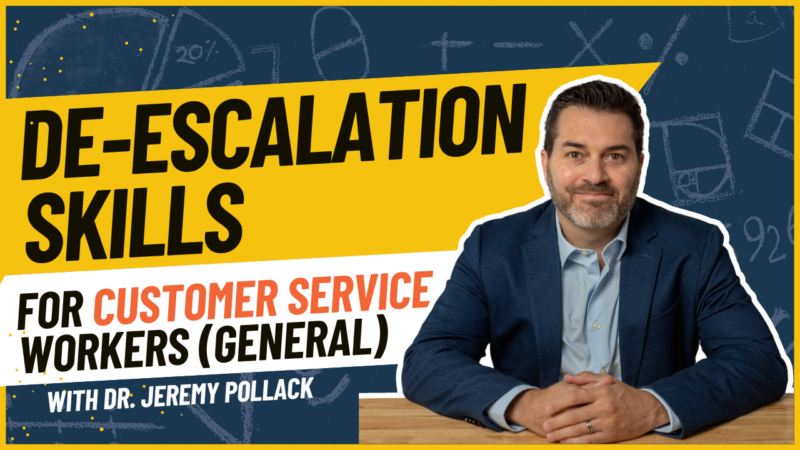Table of content
The stereotypes about people with an innate talent for understanding complex subjects such as math, chemistry, and physics tend to lack social graces are mostly untrue. Still, it is true that book learning and emotional intelligence are two different skills.
The underlying mental processes are the same; you must observe multiple instances of something and make inferences in order to choose the best course of action, but in some ways, navigating social situations is more difficult than simplifying a complex equation.
The planets of the solar system are always in the same order, and you can remember that order by recalling the sentence “My Very Educated Mother Just Served Us Noodles,” but human behavior is much more of a moving target. Your parents were right that taking your studies seriously is good preparation for success in your career, but developing emotional intelligence can also help you be successful in the workplace.
It is possible to build your emotional intelligence skills. Developing high emotional intelligence is an ongoing process because it requires you to understand your own emotions as well as other people’s, but it will help you in your career.
The Five Components of Emotional Intelligence
Psychologists have identified five components of emotional intelligence, namely self-awareness, self-regulation, motivation, empathy, and relationship management. The best way to build your emotional intelligence is to focus on one component at a time.
Since it is easier to change your own behavior than it is to change other people’s, your quest to improve emotional intelligence should begin with one of the components that focuses on your own emotions. Therefore, self-awareness or motivation is the best place to start focusing your efforts.
1. Self-Awareness
Emotionally intelligent people display self-awareness. They understand their own feelings, which is the first step to effective self-management of negative emotions. Everyone feels stress and frustration, but when you can correctly identify its cause, you can avoid spreading negativity and stay out of senseless, preventable conflicts.
If you understand that your stress is due to your financial worries and not to your coworker’s annoying laugh, you will be kinder to your coworker, and your job satisfaction will increase. Self-awareness means being able to look at the annoying customer, coworker, student, or boss in front of you and say to yourself, “He did not create this problem.”

2. Self-Regulation
The importance of emotional intelligence is not only that it helps you with self-management of your negative emotions, but also that it helps you treat other people better. Knowing that the person in front of you is not the root cause of your stress is a good start, but emotionally intelligent people go a step further.
Self-regulation requires you to use your self-control and not act on your anger. When you are self-aware, you can more easily regulate your emotions and de-escalate the situation before your anger gets the better of you.
Fortunately, emotional awareness and technical skills in conflict management form a virtuous circle. The more you resist the urge to blow up at other people, the more easily you can manage stress and communicate effectively. Self-regulation helps you improve your mental and physical health. Conversely, if you lack emotional intelligence, it is easy to get caught up in a negative feedback loop of frustration and aggression.
3. Motivation
When you are feeling frustrated, emotionally intelligent leaders will not cavalierly tell you that emotional intelligence begins with motivation and that to develop your emotional intelligence, you must find some motivation.
The truth is that everyone has motivation. Each person has a unique set of motivations, but if you compare your motivations to other people’s, you will find out that you have more in common than you thought you did. We all want to meet our physical needs, although reasonable minds can differ about what constitutes “enough” money to feel secure.
Equally importantly, we all want human relationships, although we differ as far as the people we choose as our closest companions and the qualities we value in those companions.
4. Empathy
Empathy is both a starting point and a goal when building emotional intelligence. Empathy is the ability to see other people as complete human beings and to treat them as such. It is the understanding that all human beings share the same core emotions and to recognize emotions in other people.
Human beings are born with empathy, even before we develop purely cognitive abilities, social skills, and higher emotional intelligence. Using your empathy will help you improve your personal relationships, as well as professional ones.
If you struggle with social relationships but want to get better at them, it follows that you have empathy. Everyone who has ever experienced friendship or camaraderie has it. If you are self-aware enough to have wondered about emotional intelligence in the workplace, then you are not a sociopath who does not care how much your actions cause other people to suffer. If you want to develop social awareness, practice empathy. When you do, you will find that your job satisfaction also improves.

5. Relationship Management
Emotional intelligence plays a major role in professional networking. Your ability to maintain good communication with coworkers and your colleagues in your industry is as important as your professional reputation or your technical skills. Active listening and social awareness are as important in your relationships with other people as your intelligence quotient (IQ) or your sense of humor.
Emotional Intelligence Matters in the Workplace
Emotional skills, such as social awareness and the ability to manage emotions are at least as important in the workplace as they are in your personal life. Nowhere is managing emotions more important than when it comes to interpersonal communication. The ability to regulate emotions is a prerequisite for communicating effectively for professional success.
Good communication skills and high emotional intelligence go hand in hand. Excessively emotional responses to common situations in the workplace may relieve stress in the moment, but they will make you look unprofessional.
How Can Employers Tell If You Have High Emotional Intelligence?
In theory, it is possible to measure a person’s intelligence numerically. IQ tests determine how quickly and accurately you can answer questions that require pattern recognition, logical reasoning, the drawing of inferences, and attention to detail. The number that represents your IQ is where your score ranks in relation to that of other people who have taken the test, similar to a percentile score.
It is not so easy to measure someone’s emotional quotient. You almost have to see people in action to see evidence of their high emotional intelligence. It doesn’t translate easily into a test score. Those people who brag about their IQ test scores and boast that MENSA invited them to join tend to lack self-awareness and social skills, so you can be sure that IQ tests are not an accurate measure of emotional intelligence.
Emotional Quotient Interview Questions
Even though there is no standardized emotional quotient (EQ) test, employers still want to find out about job candidates’ emotional intelligence. They want to know if the job candidate has the soft skills and intrinsic motivation to achieve success. Therefore, there are two strategies that employers sometimes follow to find out more about the job candidates’ social intelligence.
One is to ask them general questions about their personalities and personal goals. Interviewers might ask you how you handle negative feelings, emotional triggers, and tough conversations because they want to see how you approach stress management in general. In doing this, they are also actively listening for how self-aware you are and they are also taking stock of your verbal and nonverbal communication skills.
The other strategy for finding out about a candidate’s emotional intelligence is to ask questions about specific stressful situations they are likely to encounter at the job for which they are applying. For example, if you are applying for a job at a bank, they want to know how you would respond if someone falsely accused you of mishandling their money. If you were applying for a job as a hairstylist or makeup artist, the interviewer would want to know how you help people feel more confident about their physical appearance.
Manage Your Own Emotions to Manage Conflict in the Workplace
The importance of emotional intelligence lies in the fact that it requires you to understand your emotions as well as other people’s. Self-management is much more challenging than it looks, but it is a prerequisite to building relationships and is one of the most valuable assets for achieving success in your career.
Paying attention to your own emotions, and not just the stressors that trigger them, can help you with managing stress and forming strong relationships in your workplace and your industry. It is possible to be a great leader even in the face of chronic stress, as long as you possess a core competency, namely the ability to understand emotions.
A Positive Outlook Helps You Toward Life-Long Achievements
Having a healthy outlook on life is not the same as relentless optimism. Rather, acknowledging that other people are not the cause of your anger, and you choose to react the way you do, is the key to developing stronger relationships.
Thinking positively dovetails naturally with empathy and self-management. You should read other people’s nonverbal cues and tell yourself that, even if you cannot solve the problem, you can at least avoid making things worse for the other person by not overreacting and escalating the situation.
Not putting too much pressure on yourself and not having unrealistic expectations of other people is part of a positive attitude and emotional intelligence. Recognize that, if you are stressed out for reasons that other people cannot reasonably guess, then they are also stressed out for reasons that you cannot guess. Emotional intelligence requires you to give other people the benefit of the doubt.
Using Your Emotional Intelligence to Build a Rapport With People Quickly
Emotional intelligence is the key to success in many different public-facing jobs, from sales to customer support to service-oriented clerical jobs such as being a receptionist in a doctor’s office or law firm.
These jobs require you to use your emotional intelligence to make quick judgments about the extent to which people want to engage in conversation. Making small talk will make some patients at the front desk of a doctor’s office feel more relaxed, but it will stress out others more.
It isn’t your business whether a patient doesn’t want to make small talk with you because she is worried about her upcoming doctor visit or because she does not speak English well and is trying to organize her thoughts about what to say to the doctor. It is only your job to read the patient’s cues and respond appropriately.
The Role of Emotional Intelligence in Sales Jobs
People who are naturally outgoing tend to flourish in sales jobs. Being successful in a sales job is not just about being so pushy that you don’t give customers a chance to say “no” and just keep talking until they sign on the dotted line because they are too hungry and tired to listen to you anymore.
People have emotions about money, and you should use your emotional intelligence to realize that making a major purchase such as furniture, a car, or enrolling a child in a weeks-long summer camp is a big decision.
Even in sales jobs, you should listen as much as you talk. If people want to ask questions and then go on their way to think over the decision, being pushy will make them less likely to contact you again after they have thought about it. Instead, just be pleasant and remind them of your contact information.
If you follow up with them later, do it by text message or email. No one likes getting phone calls from salespeople when they are stuck in traffic or hurrying to get their children dressed for school.

Emotional Intelligence Is a Learned Skill, Not a Natural Talent
It is possible to improve your emotional intelligence by practicing empathy and self-awareness. Emotional intelligence is something you do, not something you are. When leaders seek out training courses to improve leadership skills such as communication and conflict management, what they are really learning to do is to practice emotional intelligence.
You can start by adopting a habit and trying to do it through an entire shift at work, such as not interrupting people until they get to a punctuation mark, even if they are on a long tirade, or smiling every time someone else smiles.
If customers and work supervisors have frequently made written comments about your apparent lack of self-awareness or inconsiderate behavior or short temper, then you might benefit from formal training in emotional intelligence skills.
Emotional intelligence training and coaching programs are available in many different formats and geared toward professionals in many different industries. You should take this as evidence that you are not the only person who is successful in the core skills of your profession but who struggles to connect with other people or to make the desired impression on them.
Emotional Intelligence in the Workplace Begins With Defuse De Escalation Training
Whether you are the employee whose water cooler witticisms always seem to fall flat or the manager whose team members cannot seem to get along, the solution to your workplace woes begins with Defuse De Escalation Training.
We offer individual coaching sessions and group workshops for professionals in a wide variety of industries, including but not limited to customer support, law enforcement, security, healthcare, and social work. Contact Defuse De Escalation Training today to find out more about our programs!




